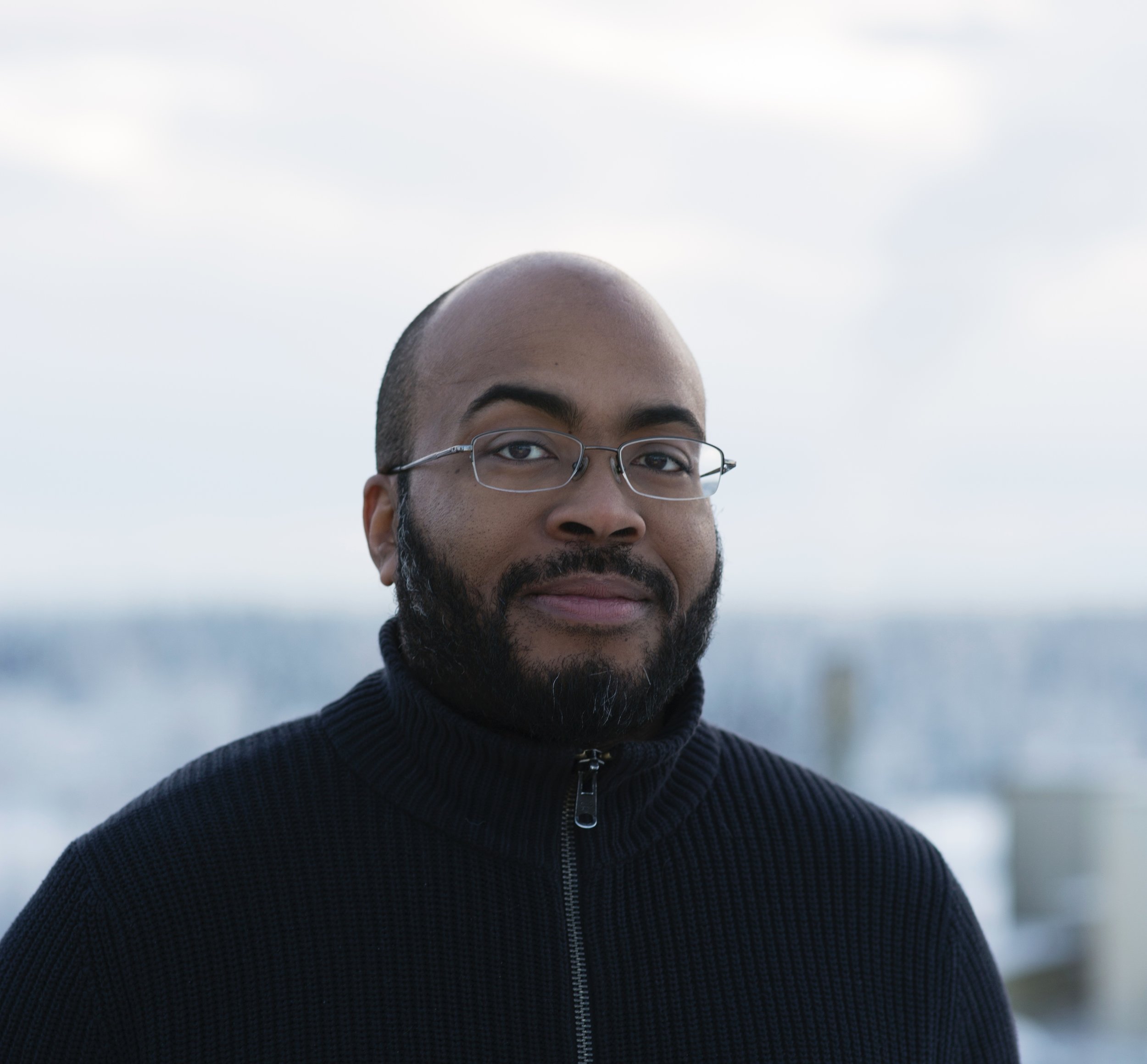Interview with Sean Hill
by Zach Harrod
Photo by Tia Tidwell
Much of the poetry you write is rooted in a historic moment or event—is that true for your poem “Goodnight” as well? Was there a specific avalanche or did this come from a more general look at miners and the conditions they face?
Though, as you point out, much of my poetry is “rooted in a historic moment” this poem, “Goodnight,” comes from a more general look at miners and their engagement with and knowledge of their environment. It came out of conversations I had with a colleague, Diana Di Stefano, who’s an environmental historian and happens to have written a book on historical avalanches titled Encounters in Avalanche Country. I was fascinated by the way the miners impacted their environment and the ways the result of that impact sometimes impacted them adversely. This poem is, in part, about that relationship.
“Language, poetry, is a tool for, among other things, articulating our “personal visions.””
In a poetic statement you wrote for H.L. Hix’s Progressive Poetics Project, you claimed that poetry can “shape our realities” and that “Poems are necessary.” Could you elaborate on those statements and how they relate to this poem?
I’m surely dating myself here by stating the obvious, but I think it’s great that the Internet makes possible and, perhaps more importantly, accessible so many conversations about poetry and just about anything else. Thank you for mentioning H.L. Hix’s Progressive Poetics Project and for making me take a look at what I said there. Though I believe poetry can “shape our realities,” I was referring more broadly to language with that phrase. Expression and exploration of ideas that become our realities and change our realities occur through language, language that engenders action. This reminds me of a quote from Audre Lorde’s essay “The Master's Tools Will Never Dismantle the Master's House.” Lorde says “In a world of possibility for us all, our personal visions help lay the groundwork for political action.” Language, poetry, is a tool for, among other things, articulating our “personal visions.” This also reminds my of a quote from Flannery O’Connor “I write because I don’t know what I think until I read what I say.” Poems are ways of engaging with the world, and I believe that engagement with the world is necessary; hence poems are necessary—some more than others perhaps. But that’s a judgment left first to the writer and then the reader. The pull of language and image and thought and form and historical situation and drama and tension made this poem, “Goodnight,” necessary for me to pursue. Thank you for finding it necessary enough to give a home in Arkansas International.
What motivates your decision in this poem (and in much of your historical poetry) to omit the “I” and consider the narrative through the third person?
“When writing about actual historical persons, I feel a bit less comfortable adopting the “I””
The decision to opt for the third person point of view instead of the first person in this poem, “Goodnight,” grew organically out of the imagined rhetorical/dramatic situation of the poem—a he said/she said situation. The fourth section of my first book, Blood Ties & Brown Liquor, is comprised of dramatic monologues in the voice of Silas Wright, my invented character. In the ordering of the manuscript I found that about a quarter of the poems were from his point of view. And I felt that he was the center of the book and that readers needed grounding, needed to get to know his environment, his community, before they got to hear him. I also felt that I knew him, perhaps more deeply than figures in my other historical poems, because I created him in order to explore the history of my hometown, Milledgeville, Georgia. I’m conscious of issues of authority and appropriation and making claims on things I don’t have a right to, so when writing about actual historical persons, I feel a bit less comfortable adopting the “I”—their “I.” And I don’t think I’m losing anything by respecting their person, their voice that way. That doesn’t necessary limit what I can engage in my writing; it’s simply that I don’t feel that the first person point of view is preeminent or preferable to the third person or second person points of view. I suppose it simply comes down to a writerly decision about point of view and narrative distance—tools for situating the reader.
Sean Hill's poem,"Goodnight" can be read in the print edition of The Arkansas International 1.
Born and raised in Milledgeville, Georgia, Sean Hill is the author of Dangerous Goods, awarded the Minnesota Book Award in Poetry, (Milkweed Editions, 2014) and Blood Ties & Brown Liquor, named one of the Ten Books All Georgians Should Read in 2015 by the Georgia Center for the Book, (UGA Press, 2008). He’s received numerous awards including fellowships from Cave Canem, the Region 2 Arts Council, the Bush Foundation, Minnesota State Arts Board, The Jerome Foundation, The MacDowell Colony, the University of Wisconsin, and a Stegner Fellowship from Stanford University. Most recently, he received a Creative Writing Fellowship from the National Endowment for the Arts. His poems have appeared in Callaloo, Harvard Review, The Oxford American, Poetry, Tin House, and numerous other journals, and in several anthologies including Black Nature and Villanelles. Hill is a consulting editor at Broadsided Press, a monthly broadside publisher. He’s an assistant professor in the creative writing program at UA-Fairbanks. More information, as well as poems, can be found at his website: www.seanhillpoetry.com.


